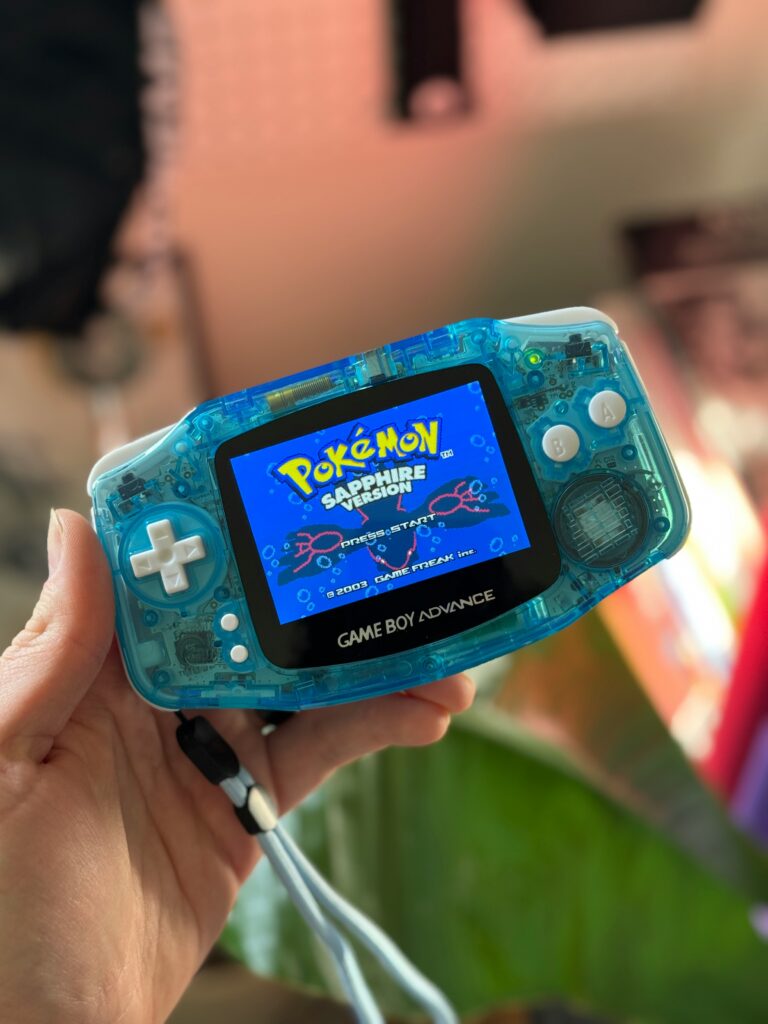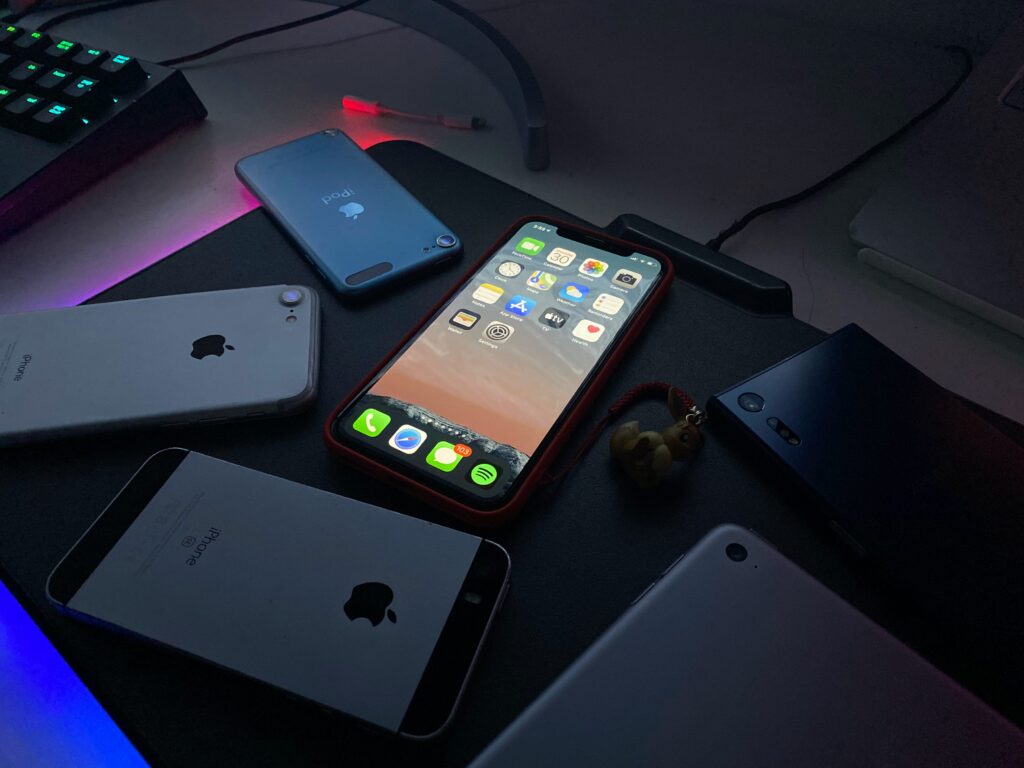Dear reader,
Are you overwhelmed by being constantly connected to the online world? Me too. Let’s try to slow down. Sit with me for a moment, and let’s talk.
I’ve always had access to the digital world, at least for as long as I can remember. My life, it seems, has been within a world constantly bombarded with different ways to connect online. This created for me a reality that was shaped exclusively around the necessity of being at the whim of every fancy: entertainment at your fingertips? You’ve got it. Want to know everything you can about a niche topic? Be my guest. Unlike a book, where the physical confines define the structure, the internet seemed endless, where one could zoom in forever.
As I’ve come into adulthood, I’ve noticed that this relationship has been a source of tension in my life. I’m not good at keeping track of a non-tangible space. I need to feel the thing in order to know of its existence and relationship to the world. I’m like an infant in that way, my “digital object permanence” never seemed to develop.
It wasn’t always this way. Or, rather, it didn’t have to be this way. We’re not born with an inherent connection to the digital world. It has to be learned. Ingrained in ourselves, like learning a language. And it is a language of its own; it must be taught from our parents or society that the online sphere is a necessity in order to perform like a normal person.
My connection to this deformed space began, ironically, not with a connection to the online world but instead when I was given my first handheld console. I was about five or six years old, and my parents gave me the original GameBoy Advance, this blue-and-gray, non-backlit creature.
I. Loved. It.
I couldn’t win any of the games, of course. Pokémon and Zelda were too complex for me. But give me the console and I would be entertained for hours. Forget about the outside, the delicate trees blowing in the New England breeze. The birds beckoned to me, but all I could focus on was the midi cries of Pikachu and Link’s grunts as he swiped his sword.

The Digital Playground
As the years passed, I eventually found my way online, through my dad’s (and eventually, my) computer. It was a hefty desktop machine, supreme in size and weight, a brutal force that chugged along with mechanical punches and whirrs. In front of its glowing box of a screen, I could be sucked into the void of forums, games, and videos. By the time I was truly online, YouTube—not Newgrounds—was just becoming king.
That became my main source of entertainment. The movie theater was my dad’s world. Bookstores were my mom’s. The online universe? That belonged to me.
And I thrived. Or, at least, I thought I did. As a teen, I only wanted more. My friends started coming to school year after year with smartphones. I wanted one. My parents gave me a flip phone (oh, the irony). My sister received an iPod touch. I needed one.
I eventually was gifted all of the above. And my descent continued. Nowadays, I seem to be addicted to consumption, to the world that we’re only just realizing has been crafted to suck our souls until we’re dry, making money through advertisements for everyone but the eyes intaking the world before them.
But over the past three years, this world has started to break. With almost every company creating a streaming, or subscription, platform, the free internet has become free-to-play. Where is our money going, if we buy-and-forget? And yet I was constantly attuned to this world. Netflix, Spotify, Hulu, they all took my money away. Money that I didn’t have a lot of; money that I still don’t have a lot of. And for content that I didn’t really connect with nor utilize as often as the payment structure demanded.
Analogue Adventures
This all changed when I got my first typewriter.

I started playwriting—hear me out—in 2022. My plays…they’re all right. But I noticed that when I began typing my plays on the computer, I would edit one word. Then a line. Then a sentence. Then whole scenes. The play wouldn’t even be finished; a first draft was an afterthought. I knew that one had to finish a work to edit it. I decided, on a whim, to get a typewriter.
Was it a silly thought? To purchase a 20 pound beast that can only do one thing: to put words on a page. I didn’t worry about this. Instead, I shelled out $200+ (I realized only after I could’ve purchased one for less) and lugged it home.
What happened next? I finished a play. And then another. I am still in the editing stage for them, but I finished a play. Previously, I had been working in Google Docs. I couldn’t even keep a scene straight, and when I scrolled back to find what happened earlier in the play, I would inevitably edit it as I went along.
This typewriter was my first step into the analog world.
Then, in 2023, I got my hands on a 2007, 5.5-gen iPod classic (it wasn’t named “classic” until the 6th generation, go figure). I had been trying to connect with my peers at work and realized the only music I ever knew was Broadway showtunes. But, with Spotify, I could so easily connect to the music I loved. I wasn’t exploring anything new. So I challenged myself. If I got an iPod, I could only put on new music. I had to explore.
And my CD collection began to grow.
I’m fortunate to live near a few record stores. So I began to explore their collection of CDs. I discovered new bands, and old ones that still resonated with me. I did, I’m ashamed to admit, allow a few Broadway tunes to appear on the device (but only my favorites, I promise!). This is a collection I’m proud of. It’s all intentional music, things that bring me joy.
Struggling to Disconnect: The Challenge of Digital Dependency
But the things I couldn’t get rid of, my phone and the like, still haunt me.

I want to get myself a dumbphone. I still feel too connected to my phone, even with my music (and movie!) collection growing. I have a stack of books that I want to read, movies that I want to watch. But my phone is so easy. And it’s difficult to take the necessity of it away from my daily life.
My banking information is on my phone. My photos are there. My directions are there. My access to information is still within the small computer in my pocket.
So I’ve determined to slowly etch myself away. I can do banking on my computer, or carry cash on me where necessary. I can get a film camera so that my photos aren’t backed up into the ether. Maps? Look them up beforehand and write them down. I’m even considering getting an old-school giant map of the area just for fun.
I’m still struggling to disconnect. The way our world works almost requires us to be connected at all times. My fiancée, for a long time, protested my getting a dumbphone. And while I haven’t made that jump yet—I’m still waiting on the “right” one—I have convinced her that, perhaps, disconnecting in this way isn’t such a terrible idea.
I don’t know where I’ll go next. But what I do know is that there is so much world out there. World that seems to be closing off the more and more I spend online.
I don’t have the perfect solution. And, of course, disconnecting means integrating more devices into your life. The beauty of the phone and computer is that they reduce the amount of things you have to carry on your person.
But if the EDC movement (that’s “Every Day Carry”) is anything to go off of, people like to carry a ton of things on their person, anyway. Why not change the way we view our technology and try connecting ourselves to the world outside of our phones?
That’s what I’m trying, anyway. And, the funny thing is? I’m loving engaging with the world in this way.
Dear reader, come with me on this journey, and let’s see what we find.
I’ll see you when I see you.
Your friend,
Ryan
